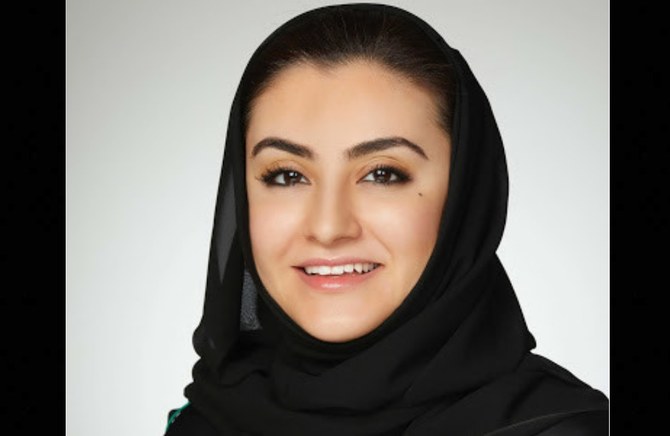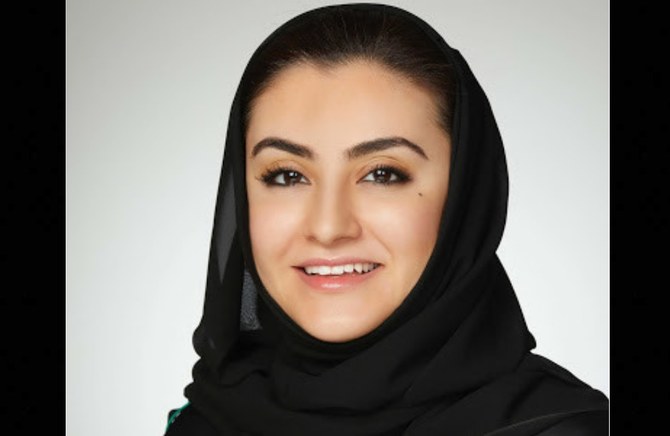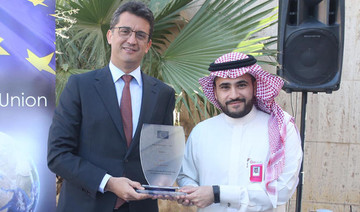RIYADH: A US-Saudi program at one of America’s top universities has been helping women leaders around the world, the co-founder told Arab News.
Qiyadat Global-Georgetown was launched in November to teach women in the Middle East, North Africa and G20 countries the fundamentals of strategic leadership.
The program is taught remotely by the Georgetown University McDonough School of Business and is a collaboration with the Qiyadat Global program in Saudi Arabia.
Since its launch there have been about 1,300 applicants and more than 200 graduates.
“We are bringing women together and letting them think together regardless of their color, race, language or geographical location. We are happy that we’re able to deliver this virtually, but it is amazing to see women literally from every continent,” Nouf Abdullah Al-Rakan, founder and executive director of Qiyadat Global-Georgetown told Arab News.
The program teaches women the fundamentals of strategic leadership and how to lead a team in different sectors, whether government, private or non-profit.
The 30-hour program intends to strengthen the knowledge of female leaders in the workplace, and guide them through practical and strategic obstacles.
The program aims to improve the leadership skills of women not only in Saudi Arabia but also across the Middle East and G20 countries.
“We are creating that global initiative. Mixing these minds and backgrounds from all over the world is really enriching,” Al-Rakan said.
A wide variety of professions have enrolled, including physicians, teachers and engineers.
The blend of career backgrounds brings different perspectives into the learning plan, participants said.
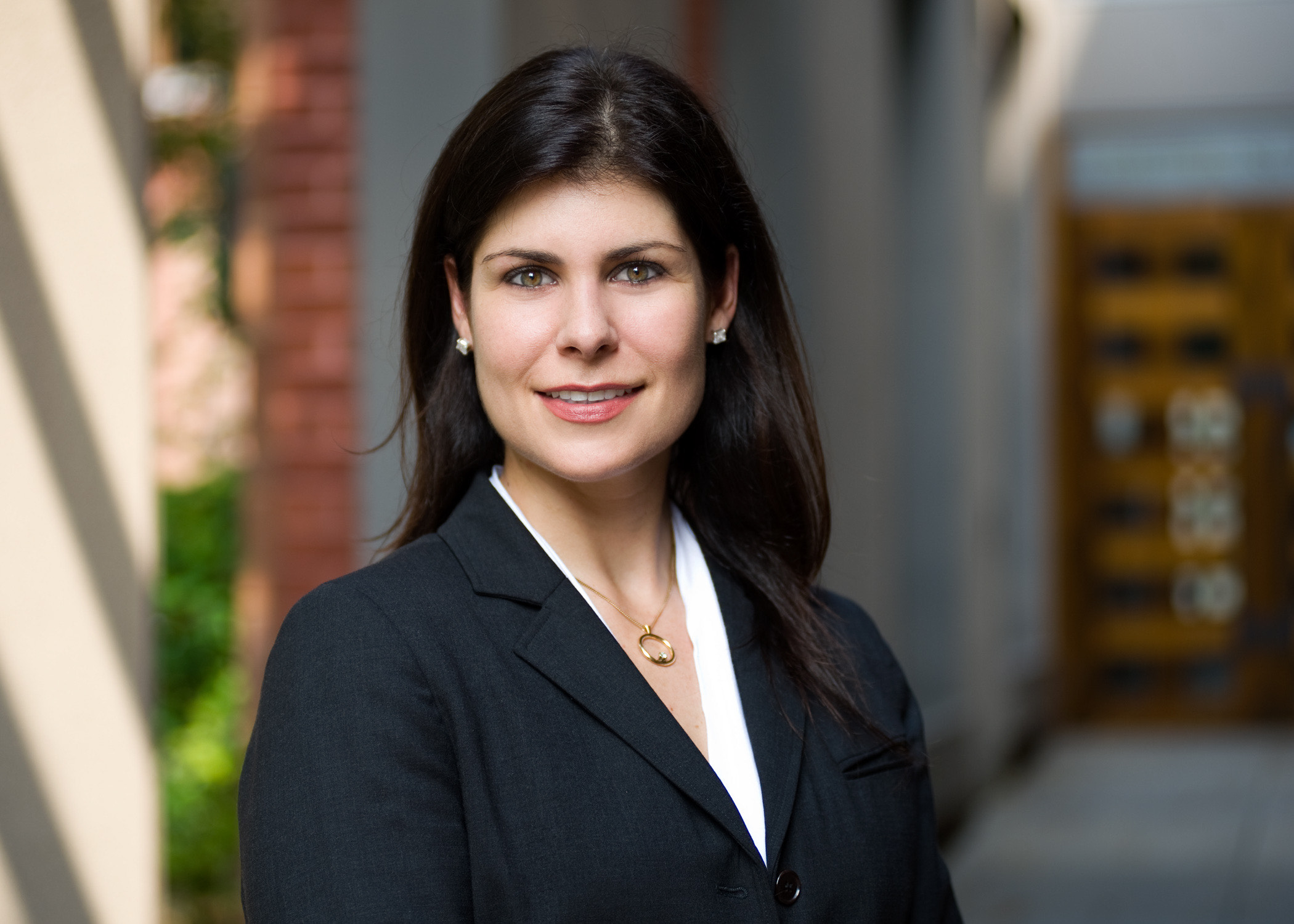
Lida Preyma, second cohort participant from Toronto, Canada Director of global AML risk management & AMLRO. (Supplied)
Lida Preyma, a 48-year-old director of global anti-money laundering risk management for BMO Capital Markets in Canada, recently took the program.
“Having such a diverse group of women as classmates made the discussions that much more interesting,” Preyma told Arab News.
“While there were some women from my industry, it was fascinating to hear about the similar challenges faced by women in other industries and countries. It shows the universality of what we all face, no matter where we live or the path we have chosen.”
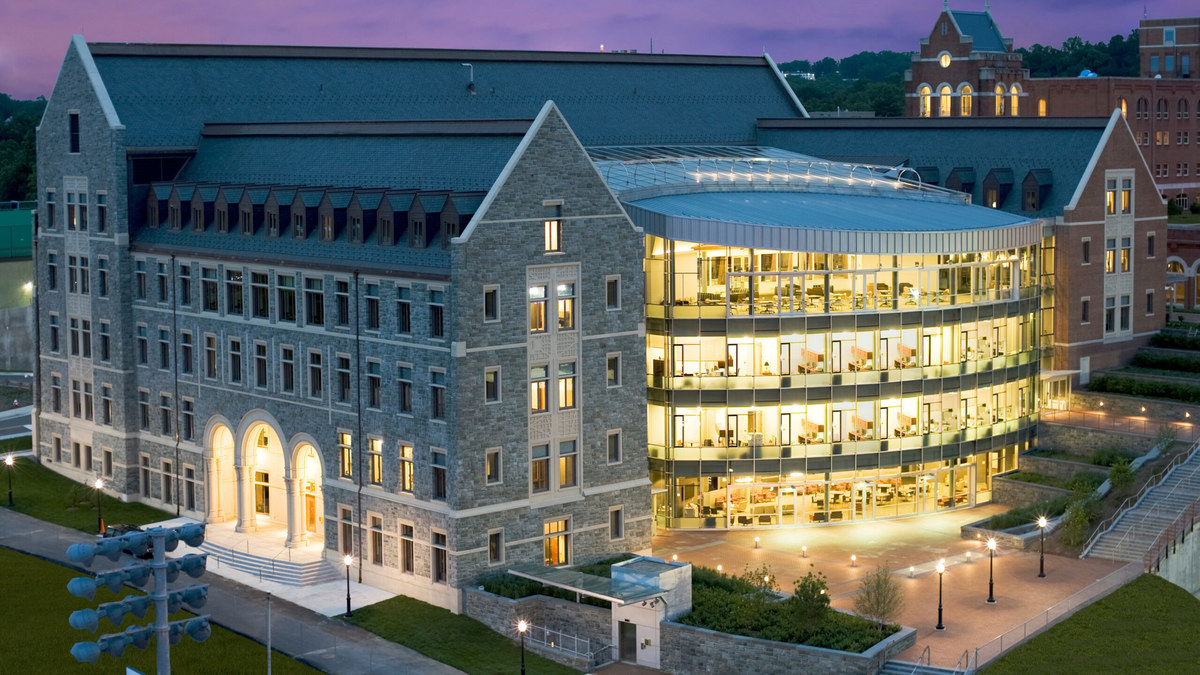
Georgetown University McDonough School of Business. (Georgetown University McDonough)
The diversity of the program allows women to network and learn from each other on a global level, organizers said.
Asked what sets the Qiyadat Global Georgetown apart from other leadership training, Al-Rakan said: “Diversity and inclusion — with this program it’s so diverse and so inclusive. We went out of our way to include women from different parts of the world.”
The program has enrolled students from more than 20 countries, including Mexico, the US, France, Spain and Japan, as well as the Middle East.
The program consists of five-days of six-hour intensive sessions. It reviews four main leadership principles that focus on enhancing personal leadership skills, leading organizational change, improving decision making and leading for performance.
There is an interactive learning style where students are able to engage with their teachers through team-building exercises and role playing.
A simulated learning technique called “Gamification” allows enrolled students to experience real-life scenarios they may face in different work environments.
Preyma said she was able to implement the lessons in her work in the finance sector.
“I learned how to improve my decision making and to lead more effectively by creating a shared vision,” she said. “I likewise learned how to implement a successful transformation which, as we have seen through this pandemic, is essential for addressing changing circumstances.
“I feel that I now have the foundational skill set to successfully navigate the next phase of my career.”
The program is fully scholarship based and is funded by Saudi Arabia’s private sector.
“The idea was to do a leadership program but at the same time offer opportunities for women from all over the world to share with us this celebration with what Saudi Arabia is actually doing, so this is a Saudi-led initiative. It is 100 percent supported by Saudi Arabia and fully financed by the Saudi private sector,” Al-Rakan said.
Training sessions begin at midday in Saudi Arabia, when it is 6 a.m. in the US and almost midnight in Japan. Al-Rakan’s team runs a day-and-night service, working endless hours to ensure equal opportunity and access to the training regardless of time zones. To ensure the highest levels of inclusivity her team created a “fully Arabized cohort,” with the entire curriculum fully translated in Arabic and English.
“We wanted to make sure it’s not just for women with advanced English but that we are actually catering for those who have little or no English,” Al-Rakan said. The team works around the clock to ensure the program “fits everybody.”
The program plans to expand into more regions in the near future to help the female leadership community.
Al-Rakan hopes they will be able to launch the next stages of the program by the end of 2021, combining virtual and in-person sessions as well as hosting a graduation in April in the Kingdom.
The class of Qiyadat Global
After launching in November, the program has already seen a flood of positive feedback from those taking part.
Ingrid Naranjo, Founder of Tawaasul Making Connections in Madrid was part of the sixth cohort of the program.

Ingrid Naranjo from Madrid was part of the sixth cohort of the program. (Supplied)
“Enrollment at the Qiyadat Global program provides the intercultural enrichment of being able to see from different angles the same questions or problems that we face in our organizations today,” Naranjo told Arab News.
Other participants said the feedback and contribution from other women on the program helped them understand the different challenges they may face in each sector.
Eman AlAnkari, 35, works as creative program manager for the Royal Heritage Sites department in the Royal Commission for AlUla.
“The program had a variety of subjects that covered different aspects of leadership, which made it even more applicable to our everyday challenges,” she said.
Esraa Al-Buti, a partner at Ernst and Young in Riyadh, joined the fourth cohort of the program.

Esraa Al-Buti, a partner at Ernst and Young in Riyadh, joined the fourth cohort of the program. (Supplied)
“The program has reflected on my individual leadership style, expanded my comfort zone, strengthened my influencing skills and educated me towards using my leadership power constructively, most importantly, joining an international network of aspiring female leaders,” she said.
“The program is bringing the best of all forms of learning, from written materials to virtual conference participation. The leadership training was fun and something that all of us participants are excited about. The amount of opportunities and knowledge offered has truly made the program stand out from the rest.”
Hanan Alhaidari, 36, is a senior manager for learning and development at Bupa Arabia in Saudi Arabia. She completed the course in December and said it was one of the best learning experiences she had been through.
“I have been greatly influenced by the leadership styles and the art of interchanging them as the situation calls,” she said.
“Throughout the program we have been building up our personal development plan that I have been retuning to regularly, and this was another effective implementation enabler included in this well-designed program.”


